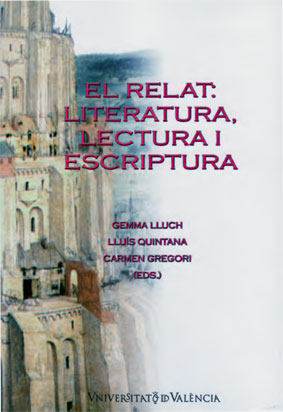Books and not books. Reflection on the canon, literary criticism and orientation to reading
DOI:
https://doi.org/10.7203/qf-elit.v18i0.3295Keywords:
canon, literature, criticism, reading Abstract
Abstract
In this article I undertake a reflection about the traditional idea of Canon and its discrepancy with today’s cultural context. Avoiding extreme positions, literary criticism should rediscover its role in the selection of those texts which distinguish themselves due to their artistic quality and, among these, choose the ones which might interest new groups of readers. Taking the reader into account leads to opening frontiers which aim at reviving the taste for reading and at shaping skilled readers, who are themselves able to distinguish between good and bad quality literature.
 Downloads
Downloads
Downloads
How to Cite
-
Abstract275
-
PDF (Español)0
-
PDF (Català)61
-
PDF190
Issue
Section
License
 Este obra está bajo una licencia de Creative Commons Reconocimiento-NoComercial-SinObraDerivada 4.0 Internacional.
Este obra está bajo una licencia de Creative Commons Reconocimiento-NoComercial-SinObraDerivada 4.0 Internacional.
Authors who publish with this journal agree to the following terms:
- Authors retain copyright and grant the journal right of first publication with the work simultaneously licensed under a Creative Commons Attribution License that allows others to share the work with an acknowledgement of the work's authorship and initial publication in this journal.
- Authors are able to enter into separate, additional contractual arrangements for the non-exclusive distribution of the journal's published version of the work (e.g., post it to an institutional repository or publish it in a book), with an acknowledgement of its initial publication in this journal.
- Authors are permitted and encouraged to post their work online (e.g., in institutional repositories or on their website) prior to and during the submission process, as it can lead to productive exchanges, as well as earlier and greater citation of published work (See The Effect of Open Access).



